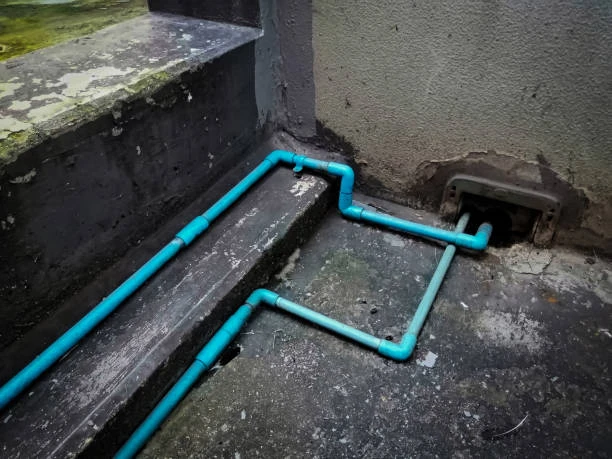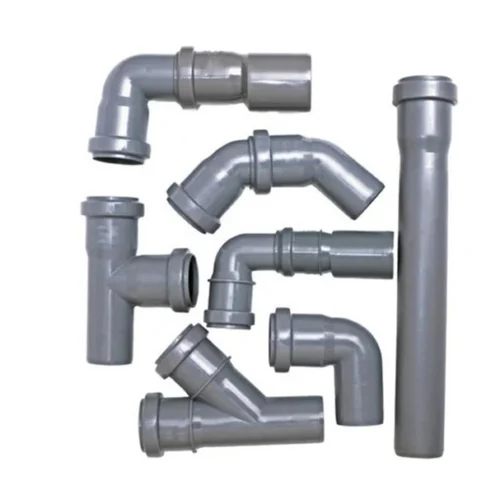In recent years, Romania has become an attractive location for international investors looking to expand manufacturing capabilities in Eastern Europe. The announcement that a Turkish investor has closed a EUR 10 million plastic pipe factory in Romania signals a new era of industrial growth. This article explores the strategic decisions behind this move, the benefits of investing in Romania’s manufacturing sector, and the future outlook for Romania’s plastic pipe industry.
What Does the EUR 10 Million Investment in Romania Mean?
Understanding the Investment
The plastic pipe factory established by a Turkish investor represents a significant investment in Romania’s manufacturing landscape. With a budget of EUR 10 million, the factory is designed to produce high-quality plastic pipes for various industries, including construction, plumbing, and water management. The factory will focus on producing polyvinyl chloride (PVC) pipes, high-density polyethylene (HDPE) pipes, and other plastic pipe materials that are increasingly in demand for both domestic and international markets.
This investment marks a key milestone in Romania’s economic development and highlights the country’s appeal to foreign investors. It also signals the growing importance of plastic pipes as a material of choice for infrastructure projects. The factory’s production capacity is expected to meet the needs of both local and international clients, further strengthening Romania’s position as a leading manufacturer in the European market.
Why Romania for Plastic Pipe Manufacturing?
Strategic Location and Cost Benefits
Romania’s strategic location at the crossroads of Eastern and Central Europe makes it an ideal hub for manufacturing and distribution. With its proximity to major European markets, the factory can easily export products to neighboring countries and beyond. Additionally, Romania benefits from relatively low labor and operational costs compared to other Western European nations, making it an attractive investment destination for international companies.
The cost advantages are significant, particularly for industries like plastic pipe manufacturing, which require substantial investment in infrastructure and technology. The Romanian government has also provided incentives to foreign investors, including tax breaks and reduced regulatory barriers, further encouraging investment in manufacturing sectors like plastic pipe production.
Moreover, Romania’s membership in the European Union (EU) offers access to a vast and integrated market, creating opportunities for scaling operations and expanding product distribution. The plastic pipe factory is well-positioned to benefit from this access, tapping into the growing demand for high-quality infrastructure solutions across the continent.
Benefits of Plastic Pipes for Infrastructure Projects
Durability, Flexibility, and Cost-Effectiveness
The rising demand for plastic pipes in Romania and Europe at large can be attributed to several key factors. One of the primary advantages of plastic pipes is their durability. Plastic pipes are resistant to corrosion, chemical degradation, and environmental factors such as UV exposure. This makes them ideal for long-term use in construction and plumbing systems, where pipes are expected to last for decades.
Additionally, plastic pipes are lightweight and flexible, making them easier to transport and install compared to traditional materials like metal or concrete. This reduces the overall cost and time required for installation, making plastic pipes a preferred choice for many construction and infrastructure projects.
Cost-effectiveness is another significant advantage. Plastic pipes are more affordable to produce and install than their metal or concrete counterparts, making them an attractive option for contractors looking to reduce project costs without sacrificing quality. This is particularly important in Romania, where there is a growing demand for affordable, yet durable infrastructure solutions.
Technological Advancements in Plastic Pipe Factory Manufacturing
Automation and Innovation in Production
The plastic pipe factory in Romania is not only a symbol of economic growth but also a testament to the technological advancements in the plastic manufacturing industry. The factory will utilize the latest automation technologies to streamline production processes, reduce waste, and improve overall efficiency. These innovations are critical for meeting the increasing demand for plastic pipes while maintaining high-quality standards.
One of the key areas of innovation in plastic pipe manufacturing is the development of advanced extrusion technologies. Extrusion is the process through which plastic pipes are formed by forcing molten plastic through a die to create the desired pipe shape. Recent advancements in extrusion equipment allow manufacturers to produce more complex pipe designs, such as pipes with varying wall thicknesses or multi-layered pipes with different material properties.
Additionally, smart manufacturing systems are increasingly being adopted to monitor production processes in real time. These systems use sensors and data analytics to track parameters like temperature, pressure, and material flow, ensuring that the pipes meet stringent quality standards. The use of such technologies will improve both the production speed and quality of the plastic pipes manufactured at the Romanian factory.

Environmental Benefits of Plastic Pipe Factory
Sustainable Manufacturing Practices
While plastic pipes have many benefits in terms of durability, flexibility, and cost-effectiveness, they also offer significant environmental advantages. The production of plastic pipes typically has a lower carbon footprint compared to other materials like metal or concrete. This is because plastic pipes require less energy to manufacture and transport, and they have a longer lifespan, reducing the need for frequent replacements.
Furthermore, plastic pipes are highly recyclable. In Romania, the new factory plans to implement sustainable practices by recycling plastic waste generated during production. By reusing materials, the factory can reduce its environmental impact and contribute to a more sustainable supply chain. This aligns with the growing trend of environmentally conscious manufacturing, where companies are looking for ways to minimize waste and energy consumption.
Another environmental benefit is the reduced need for water and chemical treatment in plastic pipe systems. Unlike metal pipes, which may corrode over time and require frequent maintenance, plastic pipes maintain their integrity and efficiency for longer periods. This results in fewer repairs and less waste, contributing to overall resource savings.
The Plastic Pipe Factory Impact of the Factory on Romania’s Economy
Creating Jobs and Stimulating Economic Growth
The establishment of a plastic pipe factory in Romania will have a positive impact on the country’s economy. In addition to the EUR 10 million investment, the factory is expected to create jobs, both directly and indirectly. These include positions in manufacturing, logistics, administration, and maintenance. The increased demand for raw materials and supporting services will also create opportunities for local suppliers and contractors.
The factory will contribute to the growth of Romania’s industrial base, attracting further foreign investment into the region. As the factory ramps up production, it will likely generate export revenue, boosting Romania’s trade balance and increasing its presence in the European and global markets.
Moreover, the success of the plastic pipe factory could encourage other companies to set up manufacturing facilities in Romania, further strengthening the country’s position as an industrial hub in Europe. This, in turn, will help improve infrastructure, technology, and employment opportunities in the country, supporting its long-term economic development.
Comparing the Turkish Investor’s Plastic Pipe Factory to Other Manufacturers
Competitive Edge of the Romanian Facility
The plastic pipe factory in Romania stands out due to its location, advanced technology, and commitment to sustainability. Compared to other plastic pipe manufacturers in Europe, this facility benefits from Romania’s cost advantages, a skilled labor force, and the ability to leverage modern manufacturing techniques like smart automation and recycling. These factors will give the factory a competitive edge in both local and international markets.
Additionally, the focus on high-quality production processes and eco-friendly practices sets the Romanian facility apart from other factories in the region. The investment in advanced extrusion technology and real-time production monitoring ensures that the factory will produce plastic pipes that meet the highest quality standards while minimizing environmental impact.
Conclusion in Plastic Pipe Factory
The closure of a EUR 10 million plastic pipe factory in Romania by a Turkish investor marks an important development in the region’s industrial growth. With its strategic location, cost advantages, and commitment to sustainability, the factory is well-positioned to meet the growing demand for high-quality plastic pipes. As Romania continues to expand its manufacturing capabilities, the success of this factory will contribute to the country’s economic development and its role as a key player in Europe’s infrastructure sector.
Frequently Asked Questions (FAQs)
1. What types of plastic pipes will the factory produce?
The factory will produce PVC, HDPE, and other plastic pipes used in construction, plumbing, and water management.
2. Why is Romania an attractive location for plastic pipe manufacturing?
Romania offers a strategic location, low operational costs, and access to European markets, making it an ideal location for manufacturing.
3. How do plastic pipes compare to other materials like metal or concrete?
Plastic pipes are more durable, cost-effective, and flexible than metal or concrete pipes, making them a preferred choice for many applications.
4. What are the environmental benefits of plastic pipes?
Plastic pipes are recyclable, require less energy to produce, and have a longer lifespan, which reduces waste and overall environmental impact.
5. How will the plastic pipe factory benefit the Romanian economy?
The factory will create jobs, stimulate local businesses, and contribute to Romania’s industrial growth and export revenues.


















